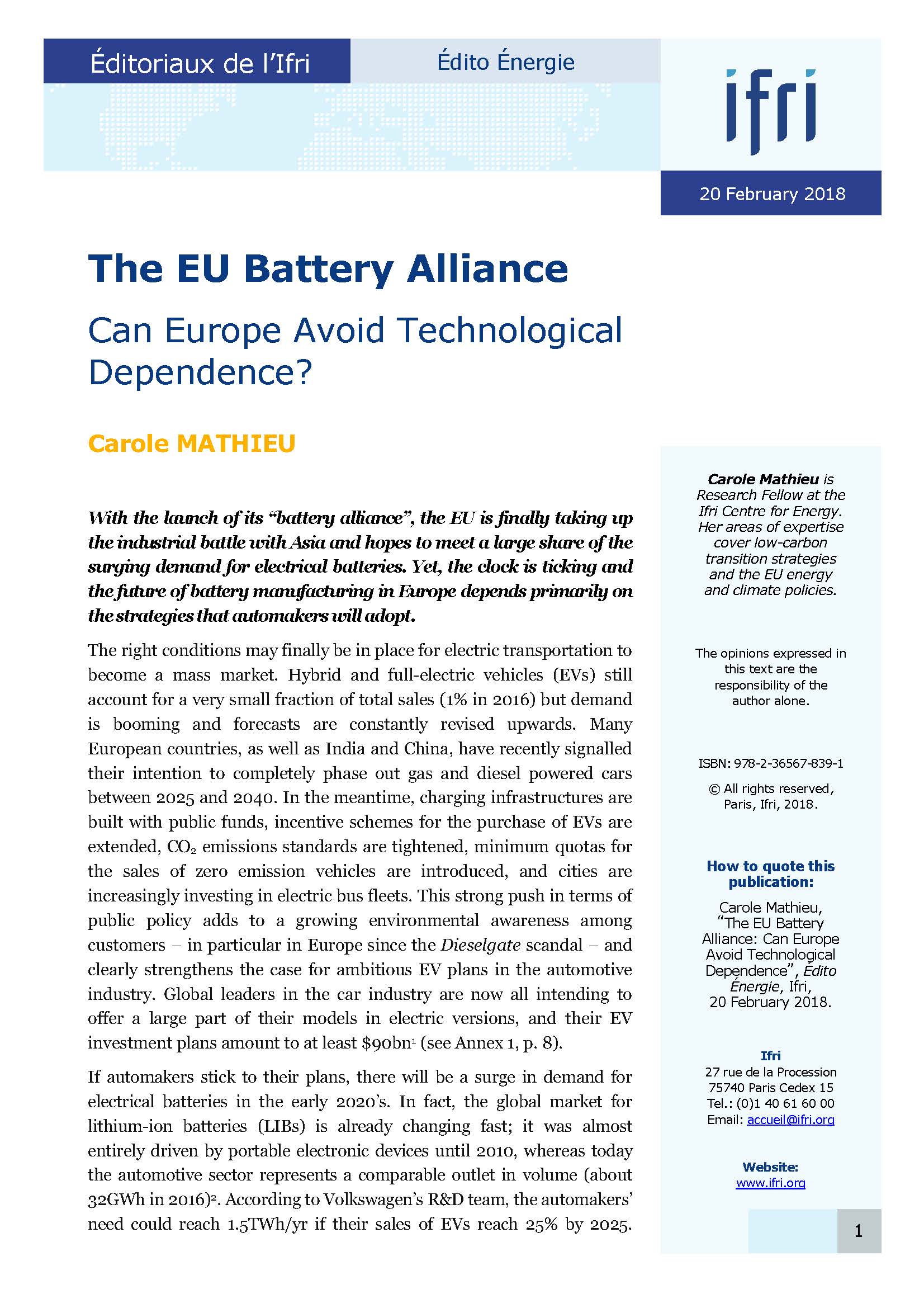The EU Battery Alliance. Can Europe Avoid Technological Dependence?

With the launch of its “battery alliance”, the European Union is finally taking up the industrial battle with Asia and hopes to meet a large share of the surging demand for electrical batteries. Yet, the clock is ticking and the future of battery manufacturing in Europe depends primarily on the strategies that automakers will adopt.
The right conditions may finally be in place for electric transportation to become a mass market. Hybrid and full-electric vehicles (EVs) still account for a very small fraction of total sales (1% in 2016) but demand is booming and forecasts are constantly revised upwards. Many European countries, as well as India and China, have recently signalled their intention to completely phase out gas and diesel powered cars between 2025 and 2040. In the meantime, charging infrastructures are built with public funds, incentive schemes for the purchase of EVs are extended, CO2 emissions standards are tightened, minimum quotas for the sales of zero emission vehicles are introduced, and cities are increasingly investing in electric bus fleets. This strong push in terms of public policy adds to a growing environmental awareness among customers – in particular in Europe since the Dieselgate scandal – and clearly strengthens the case for ambitious EV plans in the automotive industry.
To read the full text, download the document below.
Download the full analysis
This page contains only a summary of our work. If you would like to have access to all the information from our research on the subject, you can download the full version in PDF format.
The EU Battery Alliance. Can Europe Avoid Technological Dependence?
Related centers and programs
Discover our other research centers and programsFind out more
Discover all our analysesBrazil One Year Away from the October 2026 General Elections
Brazil’s general elections will be held on October 4, 2026, to elect the president, vice-president, members of the National Congress, governors, deputy governors and state legislative assemblies. For the presidential and gubernatorial elections, a second round will be held on October 25 if no candidate obtains a majority of the votes in the first round.
COP30: An Inflection Point for Climate Action and Governance
The 30th Conference of the Parties (COP30), opening in Belém, Brazil, on November 10th 2025, convenes at a perilous moment.
The Strategic Dimension of Skills in the Clean Industrial Deal
In the competitiveness and energy transition battles, the European Union (EU) must master a determinant factor: skills.
The Energy Transition Faces Geopolitical Challenges. How Can Ideological Divides Be Overcome?
President Trump’s positions and policies, combined with record coal consumption and booming global electricity demand, geo-economic confrontation, and widespread concerns about energy security, are changing the game when it comes to understanding realistic decarbonization trajectories. The war in Europe is intensifying competition between defense and transition budgets. This is also the case elsewhere in the world.














